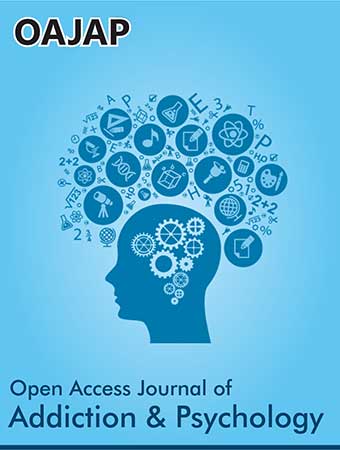 Minireview Article
Minireview Article
Social Change Application – Disadvantaged Populations
John Fisher, Graduate Program Coordinator, The University of Texas of the Permian Basin, USA.
Received Date: September 25, 2021; Published Date: October 29, 2021
Introduction
Victims of hate might be an unusually disadvantaged population, but this population is the most disadvantaged in the world. This population is the victims of abuse and bullying from over 1,000 hate groups [1]. Regardless of race, religion, socioeconomic status, gender, age, sexual orientation, or intelligence, victims of hate are oppressed and subjugated to becoming disadvantaged [2]. There are two ways to address this population. The first is to empower the victims of hate and bullying to achieve success despite their oppression. The second and the more challenging is to eliminate hate. Eliminating hate is a goal that can be accomplished if people follow the ACA code of ethics policies of causing no harm and do not discriminate [3].
Nay-Sayers
While researching this topic, a scholarly journal search for ending hate was conducted, and it was found that no articles exist. Articles can find articles on hate groups and hate crime. In addition, articles can be found analyzing the types of hate groups and the organizations of hate. However, no one has done any research on ending hate. This absence of articles can only be because people do not think hate can be conquered.
In his song to seek help for famine relief in Africa, Michael Jackson stated, “We are the World, We are the children, we are the ones to make a brighter day so let us start giving. We can make a better place for you and me” [4]. Is this song just the imagination of a group of musicians who believe that we can have a better world, a better place to live? As long as those in charge of bringing positive social change to the world believe that hate cannot be eliminated, then hate will not be eliminated. This is the first challenge that has to be addressed by those who wish to change the world and end hate. Malcolm X [5] did not believe that eliminating hate was possible and empowered his followers to achieve success by separating themselves from the White population and encouraged hate. On the other hand, Martin Luther King Jr [6] had a dream of eliminating hate. I believe that hate can be eliminated and become nothing more than a distant memory in history.
Making a Change
Overcoming the “nay-sayers” is most likely the greatest of challenges in eliminating hate. Hate is a powerful and dangerous emotion that is hard to overcome personally. As advocates of change, we must eliminate hate in our lives and teach others to live life without hate. We need to mix the empowerment of Malcolm X [5] and the dream of judging people by their character and not anything else [6]. As advocates for positive social change, we need to embrace the practice of being participatory leaders in that we work together as a team to eliminate hate. Hate cannot and will not be overcome as long as those in charge of bringing social change. However, it is possible to transform society to accept that hate can be overcome through participatory leadership.
Conclusion
Hate is a very dangerous emotion, and hate breeds hate (Weingarten, 2006). To overcome hate, the advocates of social change need to overcome the emotion individually first. Once we, as a defender of change, can overcome our hate and follow the two basic tenants of the ACA Code of ethics; do not discriminate and do no harm (American Counseling Association, 2005), we can eliminate hate.
Acknowledgement
None.
Conflict of Interest
Author declare no conflict of interest.
References
- Potok M (2011g) The Year in Hate & Extremism. Intelligence Report, pp. 41-67.
- Laureate Education Inc (2011) Social Change Application - Disadvantaged Populations” with Dr. Judy Lewis. Social Change, Leadership, and Advocacy for Counseling and Human Services Professionals. MD, USA.
- American Counseling Association (2005) ACA Code of Ethics.
- Jackson M, Turner T, Ritchie L (Composers) (1985) We are the World. CA, USA.
- Malcolm X (1964) The Ballot or the Bullet. In: KD McKenzie (Ed), American Rhetoric.
- King Jr ML (1963) I Have a Dream.
-
John Fisher. Social Change Application – Disadvantaged Populations. Social Change Application – Disadvantaged Populations .5(1): 2021. OAJAP.MS.ID.000601. DOI: 10.33552/OAJAP.2021.05.000601.
Social Change, Disadvantaged Populations, Victims of abuse, Victims of hate, Bullying, Eliminate hate, Hate crime, Hate groups
-

This work is licensed under a Creative Commons Attribution-NonCommercial 4.0 International License.






